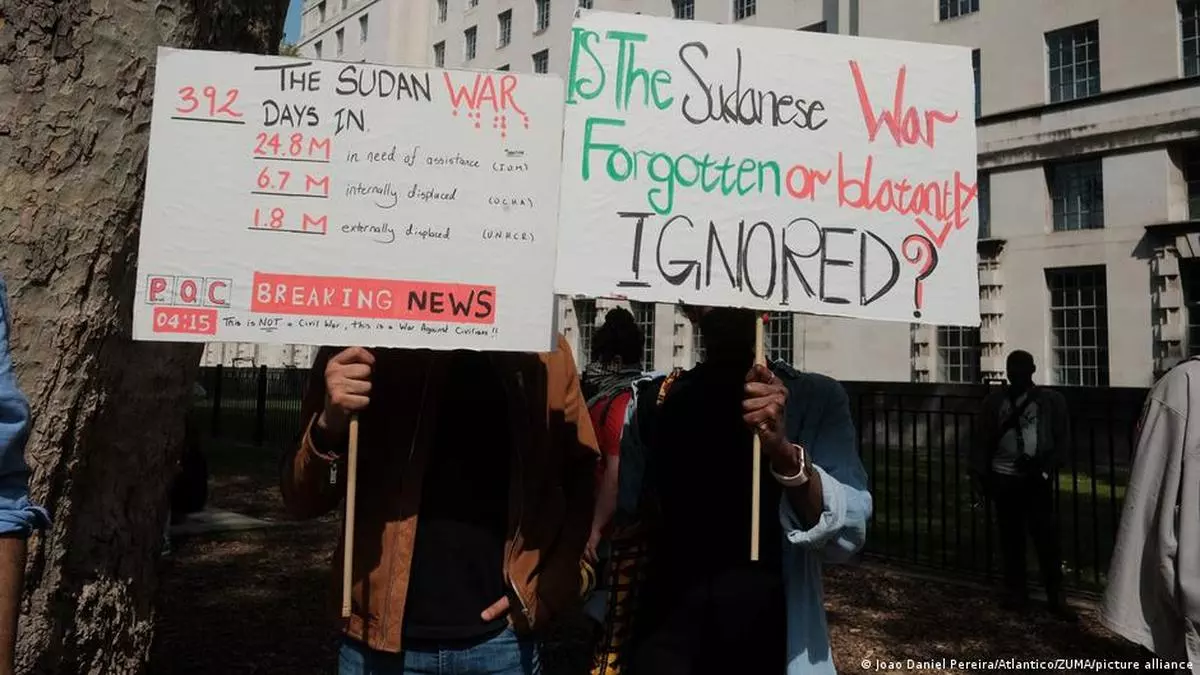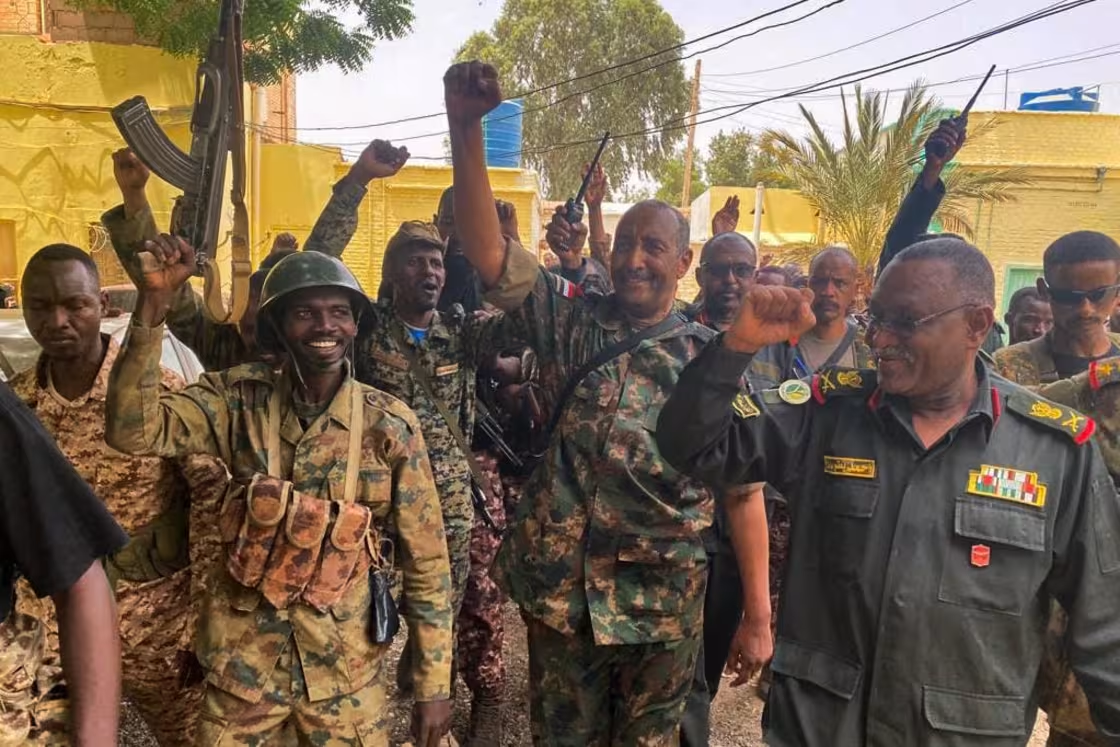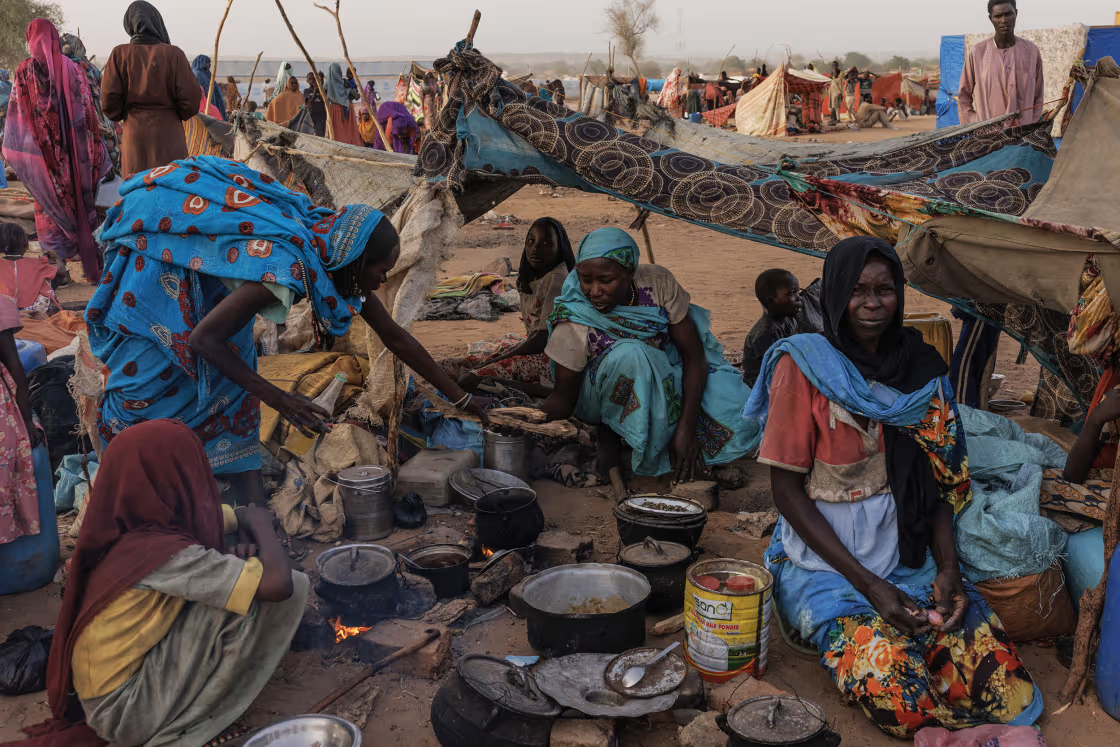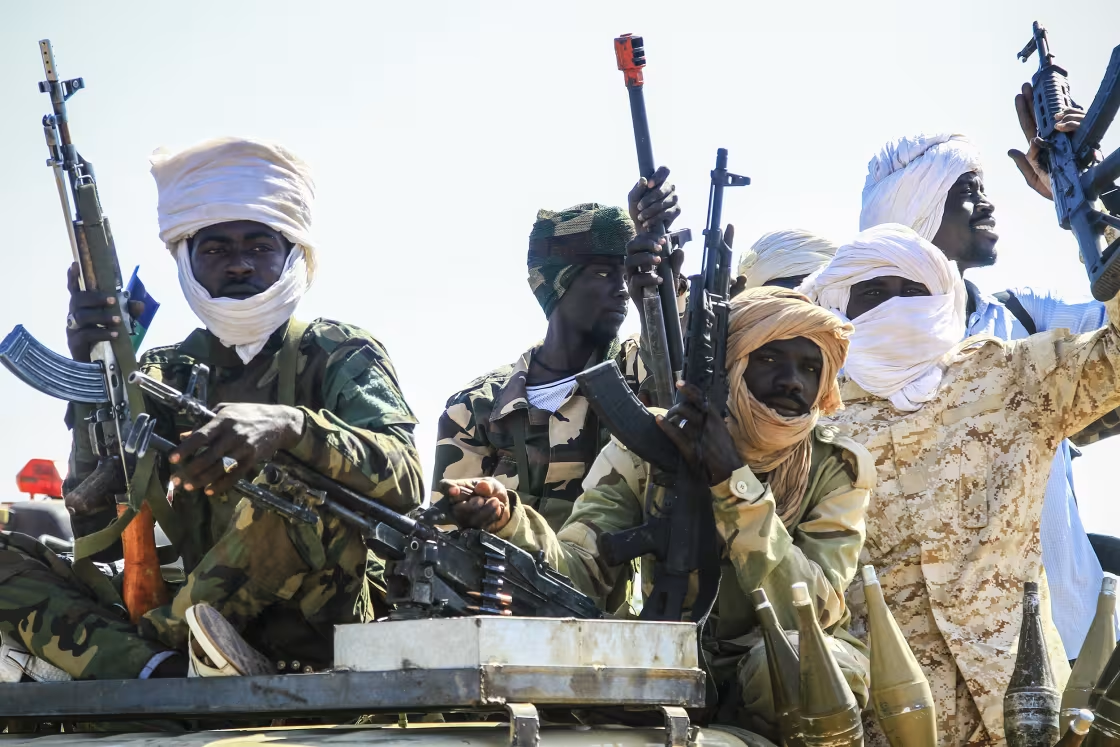Sudan in Extremis
"[The] DNA of the conflict in Darfur of 20 years ago is still present in the fighting today, but this war is more ferocious.""The atrocities that were committed in this war, it is unlike anything that Sudan has seen before.""[The RSF has been] systematically destroying civilian dwellings [in areas that have a significant population of Zaghawa, an ethnic minority in Darfur].""This represents the first specific evidence of potentially ethnically motivated alleged targeting inside El Fasher by RSF.""I’m sure Sudan will come out of this. I just hope that these dark days will be short, this war will end soon, and that the world will help us."Omer Ismail, acting foreign minister, Sudan’s transitional government before the military coup
 |
| The year-long civil war in Sudan has been overshadowed by the conflict in Gaza and the war in Ukraine. | Photo Credit: Joao Daniel Pereira/Atlantico/ZUMA/picture alliance |
"I’ve been really grappling with this question basically since I started working on Sudan issues in 1997.""Like so many things in life, the answer is a mix of things. One factor is the complexity of the situation, where neither side is obviously 'good or evil'. [Another may be a deeply ingrained, potentially even subconscious, racism or Eurocentrism where outsiders incorrectly perceive the fighting as somehow 'uncivilized' or 'typical'."Roman Deckert, Geneva-based independent expert on Sudan
 |
The current war in Sudan began with a disagreement between the country's army chief, General Abdel Fattah al-Burhan, and Lieutenant General Mohamed Hamdan, leader of the Rapid Support Forces -- formerly the Janjaweed, armed Islamist horsemen involved with the massacre of non-Arab Darfurian farmers during the previous government of President Omar Hassan al-Bashir, condemned by the International Court of Justice for war crimes and crimes against humanity -- in a power play. Since the initial phase of the conflict, other armed forces backing the Sudanese military have joined the conflict.
Now, corpses lie in the streets, and much of Khartoum, the capital, has become a rubble graveyard. Hospitals and homes have been smashed to rubble by artillery shells that soar over the Nile River. Death is so much a part of people's lives now that residents hesitate to venture too far from home -- even where security is scarce there too -- leading them to bury their dead outside the front doors of their homes.
One of the largest cities in Africa, Khartoum is now reduced to a battleground as two generals' fight for power brought the nation to civil war, and Khartoum became ground zero for a humanitarian catastrophe. An estimated 150,000 people have been killed in the space of a year. Nine million people fled their homes, comprising the globe's largest displacement crisis, (rivalling that of Syria), according to the United Nations. Officials warn an oncoming famine could kill hundreds of thousands of children in coming months.
Foreign countries such as the United Arab Emirates, Iran and Russia all play a role in the chaos in a volatile mix of outside interests providing endless weapons or fighters to the conflict that began in April of 2023 with a standoff between the military and the paramilitary Rapid Support Forces when gunfire burst on the streets of the Sudanese capital. Rivals, they ruled together after seizing power in 2021 before falling out over military merging.
The conflict appears stale-mated with the war metastasizing into a free-for-all that has devastated the country, with another genocide threatening Darfur after the war crimes committed two decades earlier. Disparate armed groups have entered the conflict even as the Sudanese state collapses, threatening the stability of a fragile region. Expert onlookers feel it to be a matter of time before Chad, Eritrea or South Sudan, as neighbours of Sudan, become involuntarily involved.
 |
Khartoum state's nine million residents have seen half flee the conflict. Most of the capital's bank branches have been looted, thousands of vehicles have been stolen as street-by-street looting becomes commonplace, mostly committed by the R.S.F. Few hospitals are now operating; in them starving infants approach death. Famine is underway in parts of Darfur and Khartoum with over 220,000 children expected to perish in coming months in a conflict where both sides use hunger as a weapon.
While Rapid Support Force fighters loot aid trucks and warehouses, the Sudanese army withholds visas, travel permits and permission to cross front lines. "One of the most horrific situations on Earth is on a trajectory to get far, far worse", commented the U.S. envoy for Sudan. Since the fall, rebels from Darfur, ethnic militias, Islamists and thousands of women and men have been recruited to join the military.
While the United Arab Emirates is supplying weaponry to the R.S.F. in anticipation of building a port on the Red Sea, Egypt has backed the military. The army has turned to Iran for a supply of drones and other weapons. Russia too is involved, offering assistance to both sides. Wagner mercenaries last year supplied the R.S.F. with antiaircraft missiles. Russians trained fighters to shoot down Sudanese warplanes. More latterly Sudan prepared to allow Russian naval access to its ports in exchange for arms and ammunition.
International concerns are that the war could spill beyond Sudan's borders, risking sucking in Ethiopia, the second-most populous country in Africa which Sudanese officials accuse of backing the R.S.F. Ethiopia's traditional foe, Eritrea, sides with the Sudanese military. "It's sheer madness. The people of Sudan demand it [a United Nations peacekeeping force]. Enough is enough", former economy minister Ibrahim Elbadawi, protested from Cairo.
 |
Labels: Darfur, Islamism, Rapid Support Forces, Regional Disequilibrium, Sudanese Civil War, Sudanese Military, United Nations
0 Comments:
Post a Comment
<< Home